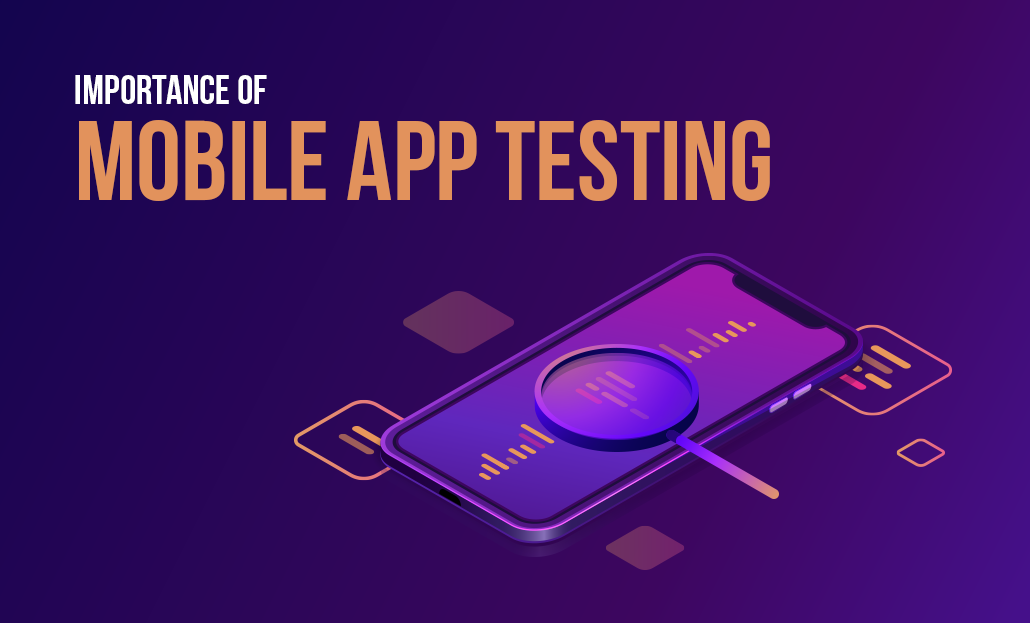Introduction
In today’s digital world, the usage of mobile applications is increasing day by day. These apps have become an indispensable part of human lives. Mobile apps are comparatively more convenient when compared to traditional ones as they are easy to use for various activities. Businesses must ensure their mobile apps are user friendly, scalable and fully functional to deliver a great user experience. However there can be many issues that arise on the mobile apps such as slow loading speed, security loopholes, poor performance, broken link etc. therefore removing these issues from mobile apps are important. Hence businesses should leverage automated mobile apps testing to get scalable, robust and fully functional mobile apps.
Overview
Test automation is a software testing technique wherein automated software testing tools are used to test mobile apps to check for their flaws. Basically there are three types of mobile apps i.e. native, Hybrid and web apps to which this automated testing can be performed.
Benefits of automating Mobile App Testing
Below are the benefits of automated mobile testing and they are as follows-
- By using automated testing it saves time and increases the speed and it ensures faster releases.
- It helps in improving app functionality.
- It ensures app security. Through automation testing loopholes under the app can easily be identified and therefore it ensures app security.
- During automated testing several tests are done to ensure the proper app performance.
- It increases app scalability
- It ensures faster app loading
- It improves app usability
- It validates app compatibility
- It saves cost
- It saves time
What are the basic considerations that should be followed for mobile test automation?
- Test mobile apps o real devices along with simulators and emulators
- Test mobile apps on various OS versions
- Test mobile apps on various device fragmentation
- Test mobile app on multiple networks
- Test mobile apps for multiple locations
- Test mobile apps for varying screen dimensions and other specifications.
Along with the above consideration, mobile testing is the most important step to follow. Below are the essential steps mentioned for a successful mobile app testing process.
How to automate Mobile testing?
- Firstly create a testing plan on which testing needs to be one on various devices and identify the testing types to be conducted on the mobile apps.
- The next step is to develop the test cases for every application function. Automated test scripts should be developed, and these test scripts can be changed according to the devices.
- It is important to download, install and configure the application on the testing devices to set up the test environment.
- The last step includes the testers should test various types of test leveraging various test automation tools. There Are several types of tests that are conducted on the devices.
Various mobile app testing types to leverage
Functional Testing
In This type of software testing, the functional aspect of the software is checked to ensure the app functions properly under all conditions.
Usability testing
This test ensures to provide a UX user friendly app.
UI testing
This test ensures that ussr faces no difficulty while accessing the app.
User acceptance testing
The main aim of this test is to check that an app is accepted by the end users. During this possession end users are involved in testing and their reactions and responses are recorded for further improvement of the app.
Performance and load testing
This test is conducted to check the performance of the app.
Security testing
This test ensures that the app is protected from any kind of cyber attacks.
Accessibility test
This test is conducted to ensure that the app complies with the accessibility guidelines.
Digital testing
This testing is essential for digital apps. It ensures the effective functioning, performance, security, usability and accessibility of digital apps.
What Challenges do testers face performing mobile automation testing?
Following are the challenges faced by testers-
- Selecting the rights automation tool
- Device OS fragmentation
- Identify the right test automation strategy
- False positives and false negatives
- Lack of team collaboration
Major automation testing tools used for testing automation
- Tricentis Tosca- It is a continuous testing platform used to design automated, functional and end to end software testing. This testing tool allows codeless testing for any mobile app with the help of a simple functionality.
- Appium- It is an open source tool for testing of mobile applications. This tool helps in testing of apps developed on iOS, Android devices and it supports native, hybrid and web mobile apps.
- Test Complete- It is one of the easy to use tools. This tool provides maximum test coverage with a hybrid object and visual recognition engine.
- Ranorex Studio- It is all in one automation tool. This tool includes features of UI object recognition, intuitive interface, and full IDE. This tool allows cross platform testing.
Conclusion
The growing usage of mobile apps and the demand of using UX users have increased the need of testing in today’s businesses. Therefore it is essential for everyone to have effective testing tools in order to test their mobile apps for better revenue.


